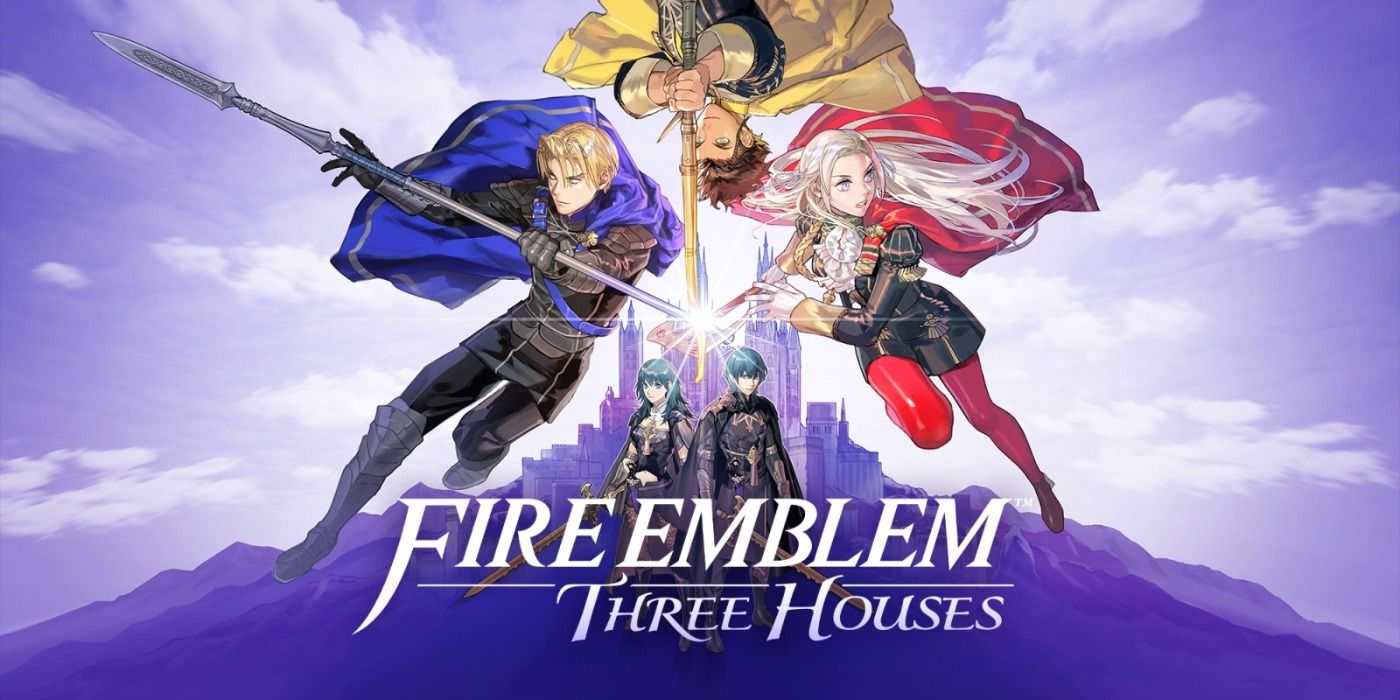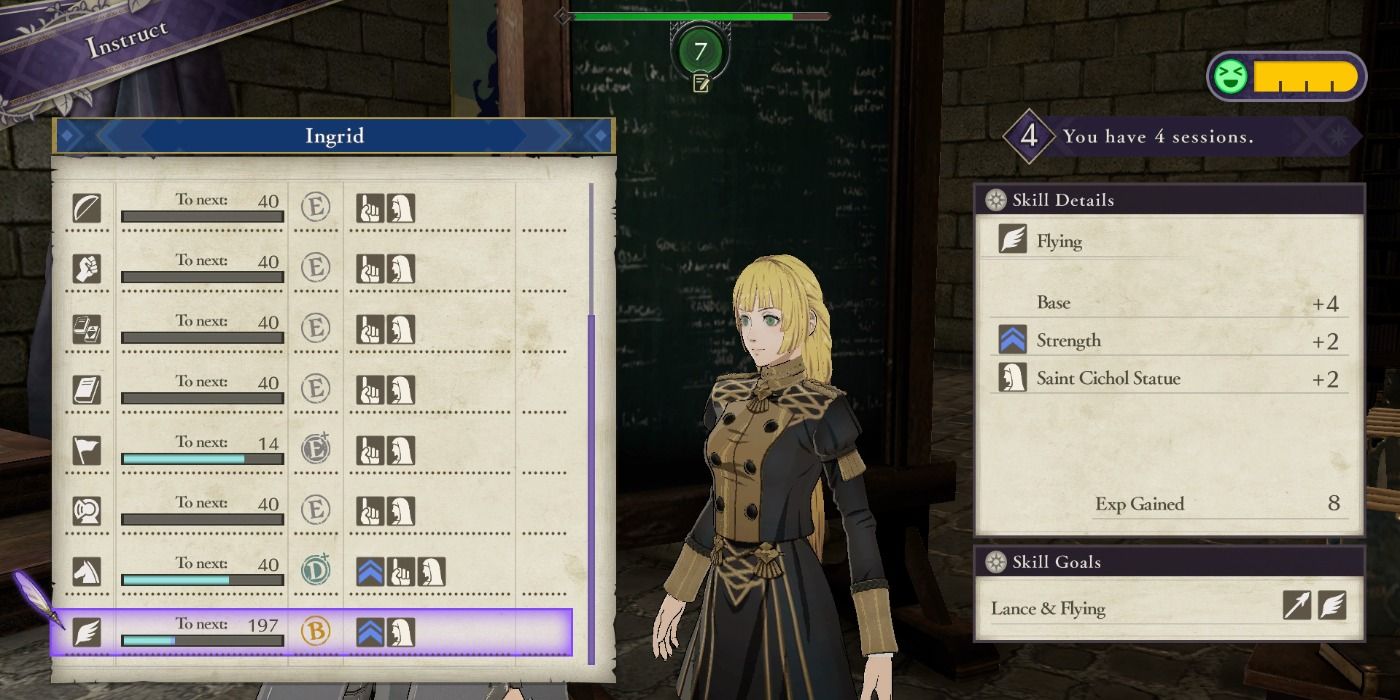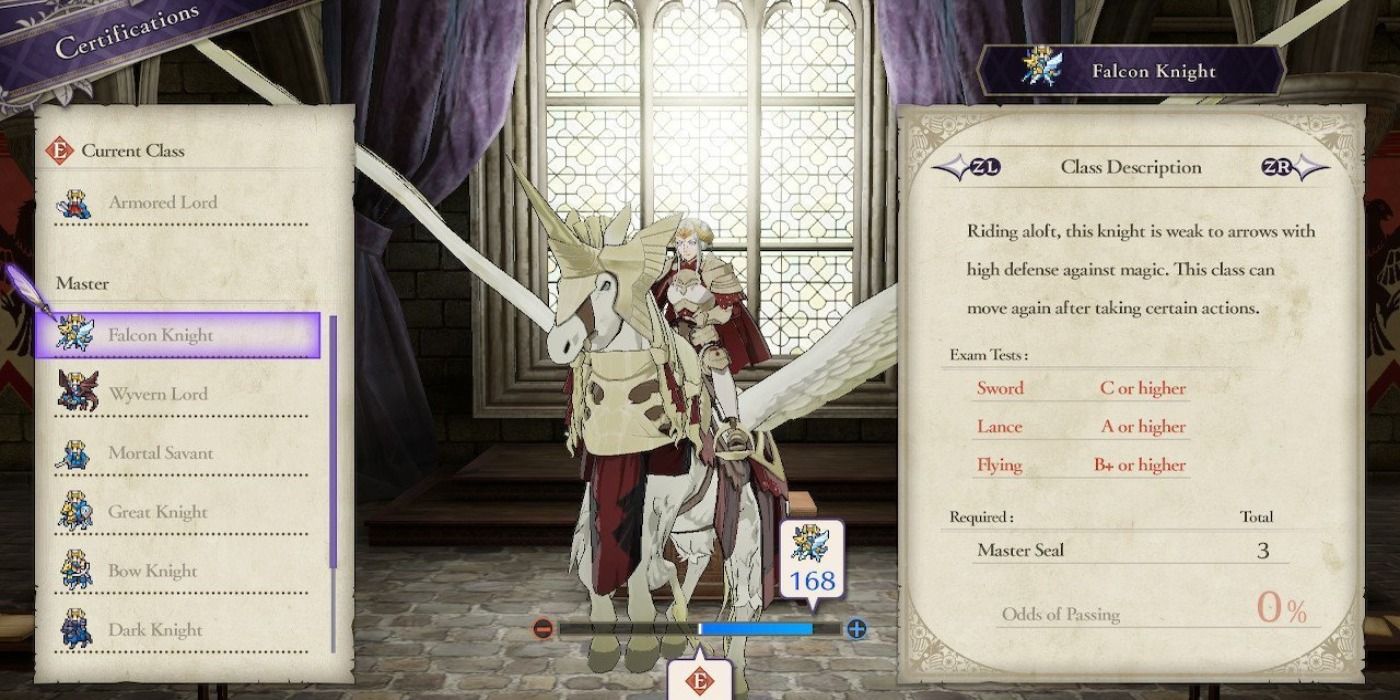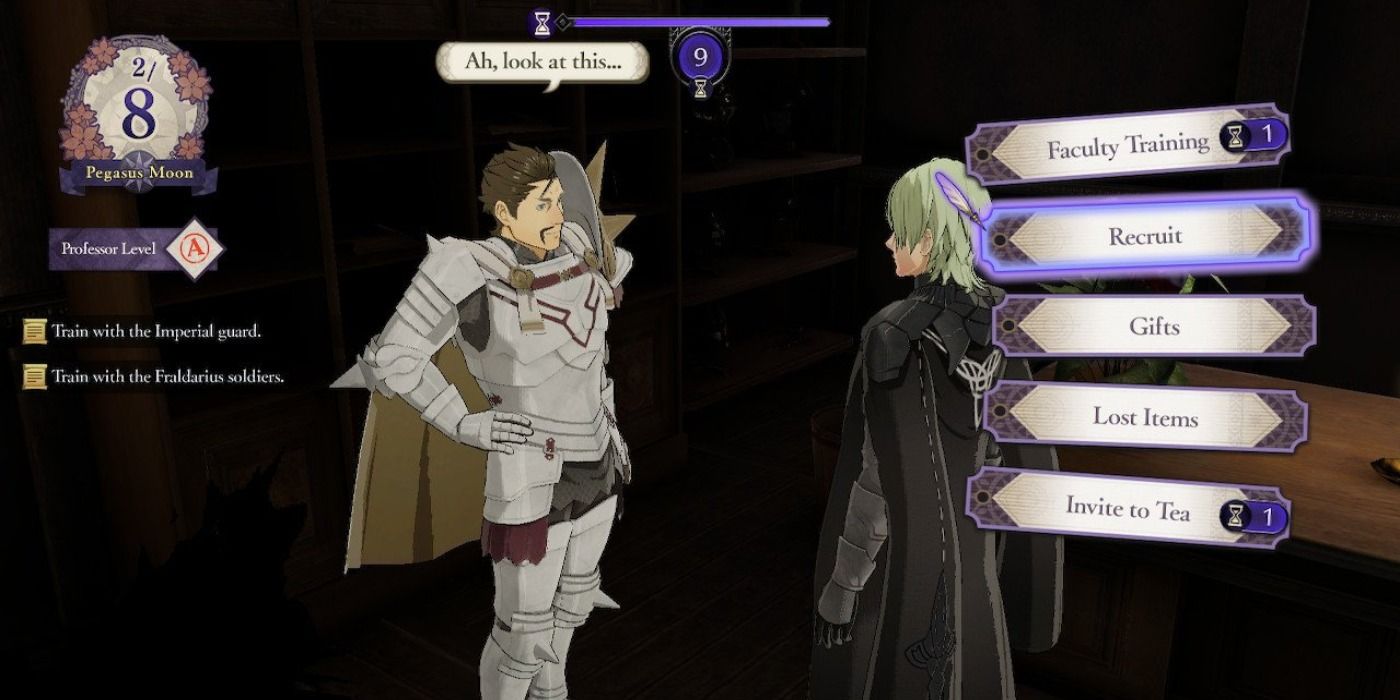With a huge world and multiple paths that can take up to 80 hours each, Fire Emblem: Three Houses is an absolutely massive game easy to sink your whole life into. Especially for a new Fire Emblem player, though, a lot of the overlapping systems that give this game its depth and replayability can also be intimidating. Whether you're a total newcomer or just a quick refresher on some of the game's mechanics before the DLC comes out, here are some things you'll need to know to get started. So pick a house and jump in!
The story of Three Houses takes place on the continent of Fódlan, which is split into three main factions at relative peace when the game starts: the Adrestian Empire, the Holy Kingdom of Faerghus, and the Leicester Alliance. At the center of the continent is the Garreg Mach Monastery, a massive school that serves as the training ground for the children of nobles and merchants from all around Fódlan. You are put in the role of Byleth, a mysterious child of a mercenary who becomes a professor for one of the three houses these students call home, working and studying with them every day to help them reach their highest potential. All the while, shadowy forces conspire to break the uneasy peace holding the continent together.
Skill Levels and Lessons in Fire Emblem: Three Houses
Many of the decisions to make week to week and month to month will be about how to train the skills of your house's many students and other units you've recruited along the way. Each character has their own strengths and weaknesses, but they can all try to learn any skill. In previous Fire Emblem games, each character was only able to use a few different types of weapons or magic, but in Three Houses, the only limit to a character's skills is the amount of time put into them. As characters gain skill levels, they will gain access to better equipment, more classes, and even new combat arts and abilities that can have dramatic effects on the way they battle!
The different skills correspond to different weapons and abilities that characters may learn. Sword, Lance, Axe, Bow, and Brawling skill levels allow characters to wield more powerful weapons of the corresponding type. The Reason skill will increase the more offensively oriented Black or Dark Magic spells a character has access to each battle while the Faith skill increases the generally more defensive and utility White Magic spells they have access to (assuming they're currently in a class that can cast magic). Increasing the Authority skill will allow a character to bring more powerful battalions into battle, granting them stat buffs and powerful gambits with swingy effects. And finally, the Heavy Armor, Riding, and Flying skills are crucial to mastering some of the classes with different movement styles. Depending on the student, skills will usually start at E, E+, or D rank, but can be trained through A+ and eventually up to S+ rank through consistent effort.
In battle, characters will naturally gain a little bit of experience with the skills they are using, but the main way to increase these skill levels is through the weekly training sessions at the monastery. Each week the professor can select a handful of students to give single instruction and can also set one or two skill learning goals for every unit. Different units will gain skill levels at different ranks: for example, Dimitri has a strength in the Lance skill and a weakness in the Axe skill, so devoting time to training him with lances will be quicker and more effective. Some units have a budding talent in one skill, which will be represented by a triangle of empty stars next to one of their neutral or weak skills. Give them enough individual instruction in that skill, and it'll become a new strength, as well as unlock a special art or ability unique to that character!
With all of this freedom, however, it can be easy to split your training focus too thin between many different skills. The best weapons and abilities won't be available until some of the higher skill ranks, so it's worth taking some time within the first few chapters of the game to figure out what skills are worth focusing on for each character. The skill system is flexible enough that it's completely possible to drop a skill or do some work to bring a character's neglected skill up later, but make sure you're going into the middle of the game with at least some plan for the roles that each of your units will be playing.
Classes and Certifications in Fire Emblem: Three Houses
Beyond skill levels themselves, a character's class will have the largest effect on the roles and abilities they'll bring into each battle. Classes determine how likely each stat is to increase during a level up, the rate at which certain skill levels will increase, what kind of movement a unit uses to get around the battlefield, whether they can cast their magical spells, and what extra abilities they can use. Preparing units for classes down the line and utilizing them effectively is one of the most important parts of mastering this game.
Certification into a new class is simple. To start, a character needs to be a high enough level and use the proper Seal item to certify in a given class. Each class comes with its own skill level requirements, increasing with the strength of the class. For example, the beginner Soldier class only requires a D skill in Lances, while the more advanced Fortress Knight class requires a B rank in both Axes and Heavy Armor. If a character's skill levels are only slightly lower than the suggested level, they can still attempt to certify; however, the chances of successfully certifying go down from 100% with lower skill levels. It's predetermined on every given day whether a certification will succeed or not, so save your game before attempting to certify and you can save the seal by reloading to save a Seal and trying another class or another day. There's no limit to the number of certifications any character can have, so try out lots of different classes for each of your characters and let them master as many as they can!
A few certifications work in a slightly different way than the normal methods and are worth keeping a lookout for. The intermediate Dark Mage and advanced Dark Bishop classes are only available by using a specific item that may be a little challenging to acquire without a bit of luck and bravery. These male-only classes specialize in Black Magic rather than Dark Magic and come with a few interesting skills, and are slightly more offensively oriented than their more common Mage and Warlock counterparts. The special Dancer class is available for one unit of your choice through normal story progression. During a certain month talk to any student and ask them to join a dance competition when prompted; if their charm stat is high enough, they will win and gain access to the class. The Dancer specializes in swords and has access to magic, but most importantly has the powerful ability to grant an ally an extra turn after they've already moved.
Activities and Recruiting Units in Fire Emblem: Three Houses
The units you have are tremendously important in any Fire Emblem game, but with Three House's emphasis on telling a story centered in one place with a constant cast of characters, this has never been more apparent. Exploring the monastery, performing activities, and eventually recruiting new units from the cast can be as rewarding to dive into as the combat itself!
At the start of the game, your team to bring into battle will consist of the professor character, your chosen house leader, and the other seven playable characters from that house. However, there are opportunities to recruit many of the other characters in the game throughout the course of the first half. With the exception of the other house leaders and some of their closest allied students (Hubert for Edelgard, Dedue for Dimitri, and depending on certain choices, Hilda for Claude), all students are available for recruitment from Chapter 2 onward. Each student comes with a certain minimum stat and skill level requirement from the protagonist, usually related to one of the areas that that student is naturally inclined towards. As an example, Leonie from the Golden Deer requires a certain strength stat and Lance skill level before she agrees to join. These requirements can vary a lot between characters, but generally, the ones that require a skill Byleth is strong in will be of a higher level to offset their natural affinity. Because of that, focus on trying to recruit only a few characters so that Byleth doesn't become stretched too thin between too many skills. Humorously, Sylvain of the Blue Lions has quite a high requirement for recruitment as a rule, but will automatically be recruited by a female Byleth. Other non-student characters can also be recruited but they tend to be a little more straightforward. Other teachers and members of the Church of Seiros at Garreg Mach Monastery will either automatically join at certain points or will be available for recruitment after certain chapters once Byleth has reached a high enough level, but some of these characters' availability may vary depending on the route you're playing.
One way to make recruiting students a little easier is by building support with them. Support is a staple mechanic of the Fire Emblem series that gives a statistical significance to the bonds that characters develop throughout the course of the story. As compatible units (as shown by the Support menu) battle near each other and participate in activities together at the monastery, they'll grant each other bonuses in combat when they stand near each other. Support with Byleth is even more important, as getting high support levels can reduce or even completely eliminate statistical requirements for recruitment. For characters you're interested in recruiting but require skills you're not interested in for Byleth, make sure to give them lots of gifts and do lots of activities with them to raise your support level, skipping some hard training with the power of friendship!
Fire Emblem: Three Houses is available now on the Nintendo Switch.




